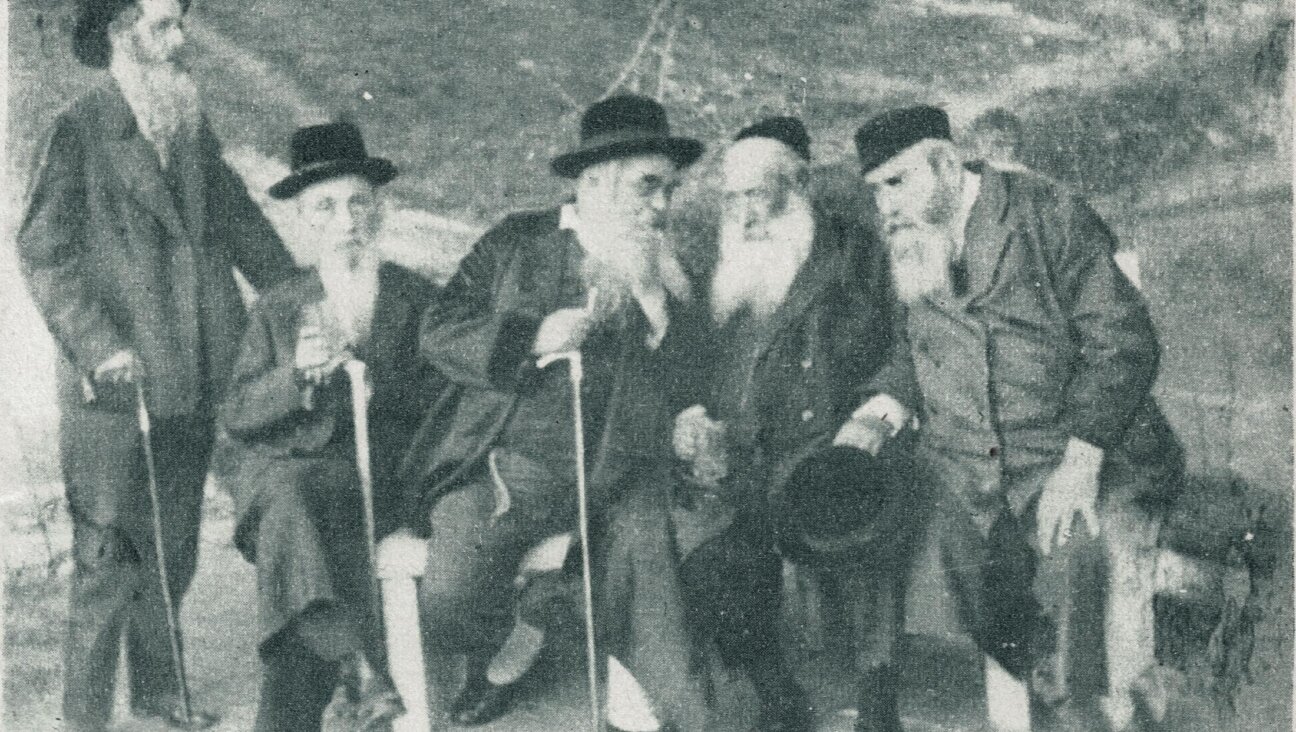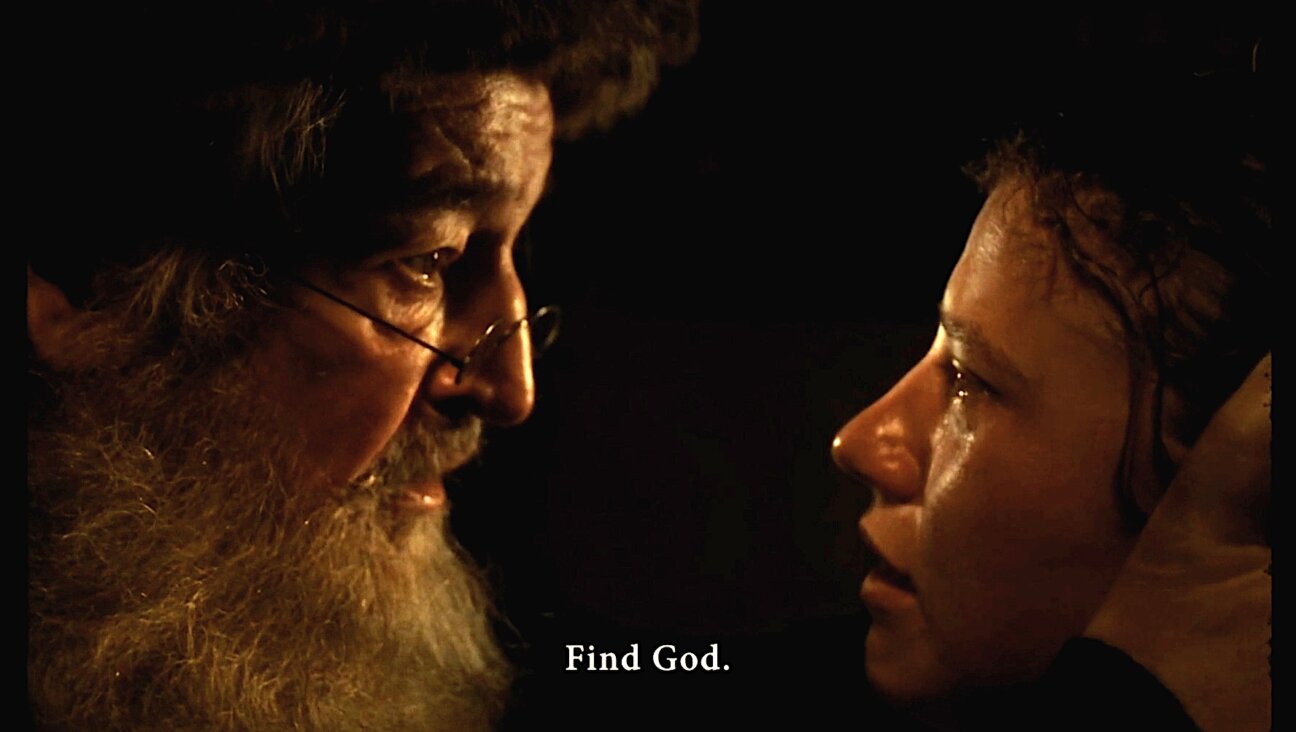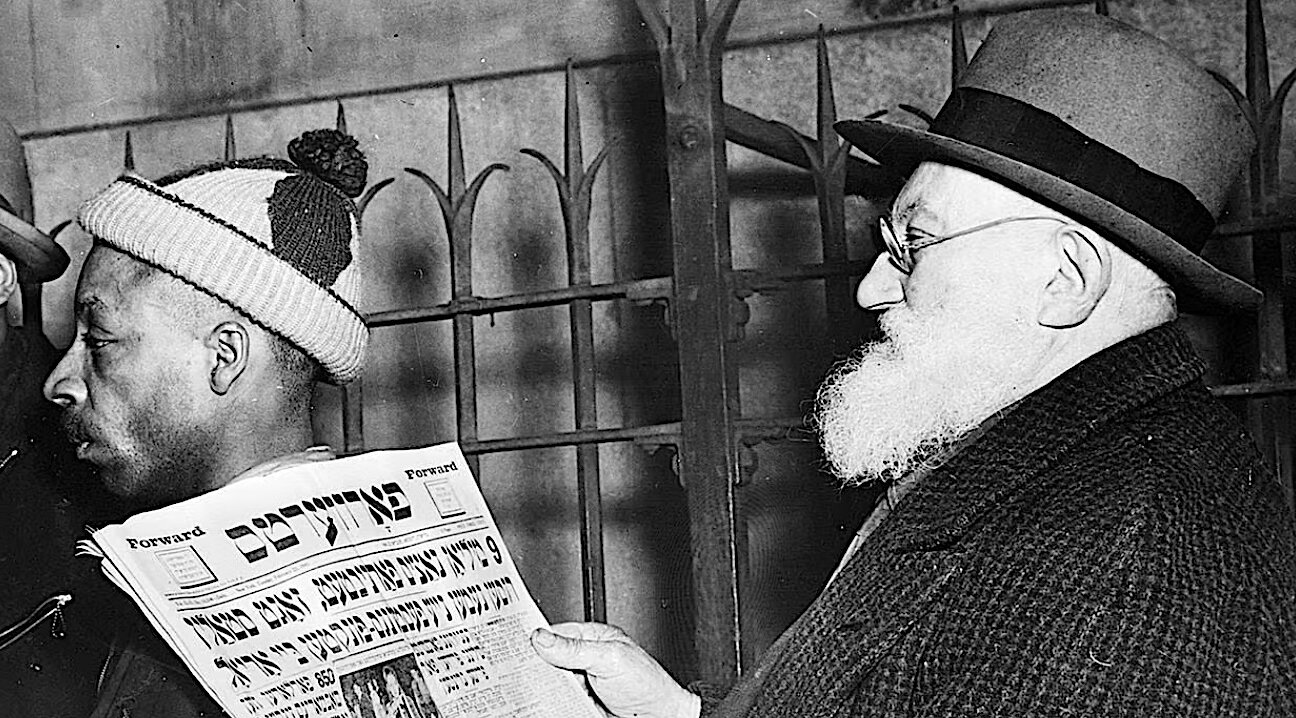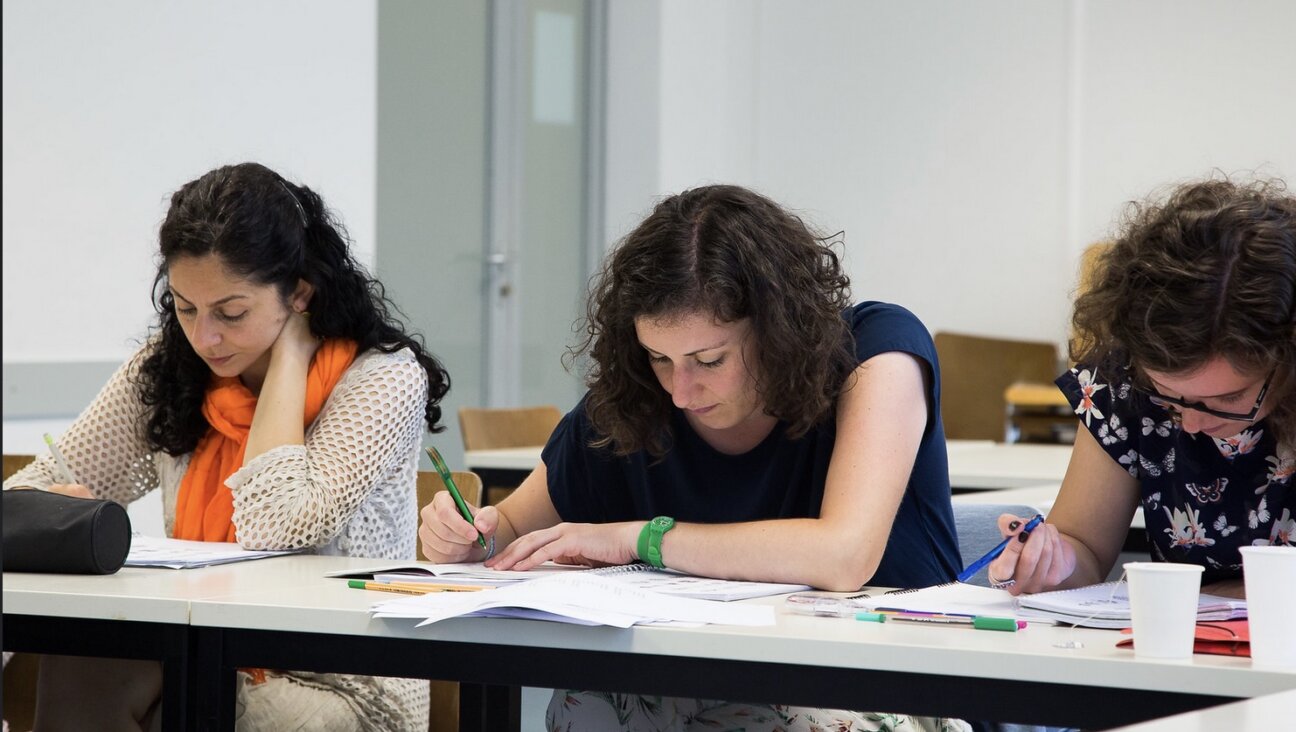A young artist’s search for the long-lost script of a Yiddish play
A new play aims to counteract stereotypes promoted by many news articles about the Yiddishist community
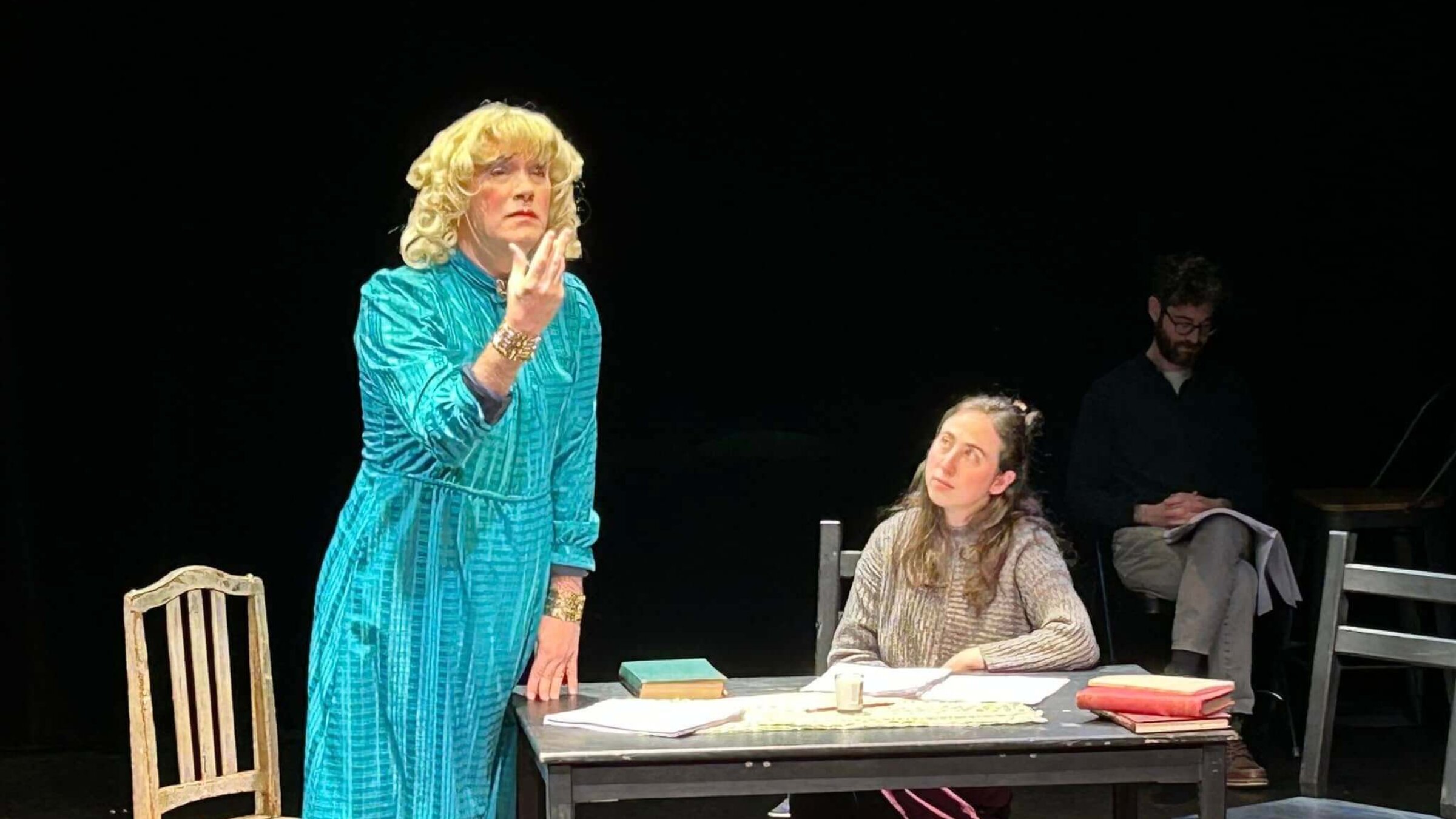
A scene from “Shtumer Shabes.” From left: Mitzi Manna, Alona Bach and Noah J. Mitchel Photo by Lori Leifer
Why do so many authors of news articles about the Yiddishist world get it wrong? This question has been plaguing Yiddish cultural critic Rokhl Kafrissen for years.
“There is a certain narrative that outsiders come in with,” Kafrissen says. “That Yiddish is tragic, or that the point of knowing Yiddish is in order to talk to your grandparents. So I decided to write a play that depicted the experience of being a Yiddishist from the inside.”
A dramatic reading of that play, Shtumer Shabes (Silent Sabbath), will take place this Wednesday evening in lower Manhattan.
The setting is the year 2000, in a cramped East Village co-op. A performance arts grad student, Jess, is visiting an elderly Yiddish theatre diva, Sonja, believing that the aging actress has the long-lost script of an avant-garde Yiddish play, Shtumer Shabes. Finding this script would not only benefit Jess academically; it could also help her rewrite Yiddish theater history. Sonja may in fact have it in her possession, but hesitates to share it.
“I wanted to depict the diversity of the Yiddishist world, that it provides a common cultural meeting ground for many kinds of people, including non-Jews,” Kafrissen said. “It brings people together across generations, both Jews and non-Jews, as well as people from different countries.”
The play stars Alona Bach, Noah J. Mitchel and Mitzi Manna.
The performance, sponsored by the Congress for Jewish Culture, takes place on Wednesday, Jan. 8 at 7:00 pm, in Theatre 154, located at 154 Christopher Street, NYC. Seats are free but limited. To reserve a seat send an email to [email protected].”
A message from our Publisher & CEO Rachel Fishman Feddersen

I hope you appreciated this article. Before you go, I’d like to ask you to please support the Forward’s award-winning, nonprofit journalism during this critical time.
At a time when other newsrooms are closing or cutting back, the Forward has removed its paywall and invested additional resources to report on the ground from Israel and around the U.S. on the impact of the war, rising antisemitism and polarized discourse.
Readers like you make it all possible. Support our work by becoming a Forward Member and connect with our journalism and your community.
— Rachel Fishman Feddersen, Publisher and CEO








